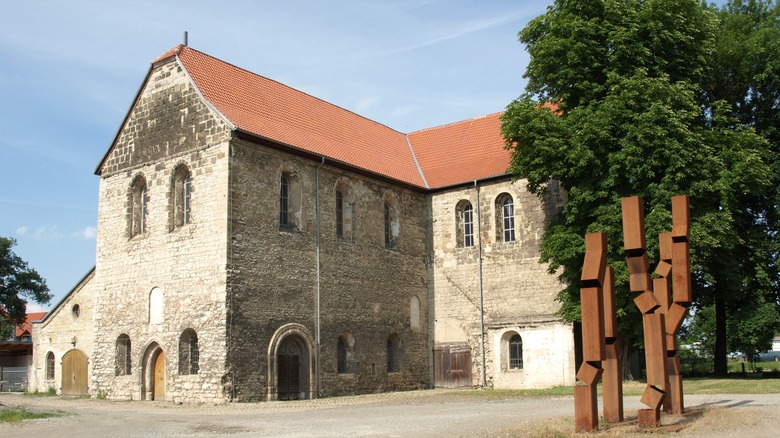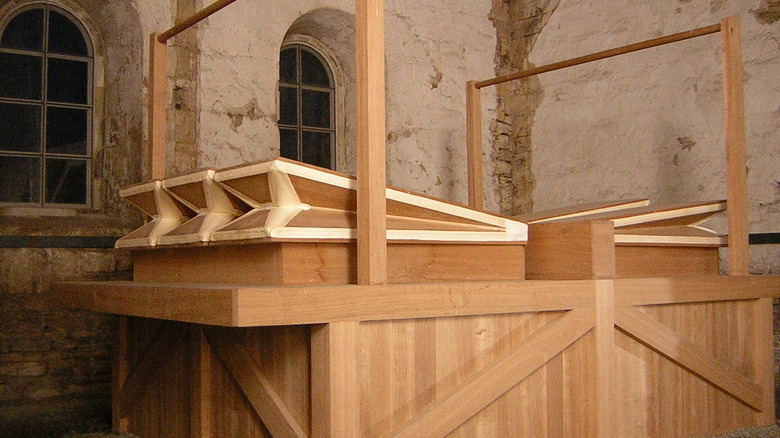Why A German Church Will Be Playing The Same Song For The Next Six Centuries
You may not recognize the name John Cage, unless at some point in your life you've been a serious student of music or philosophy. The composer and philosopher, who died in 1992, produced experimental and avant-garde pieces designed to challenge the performer's, and the listener's, experience of music (per Britannica). For example, one of his pieces, "4'33"," consists of nothing but a pianist sitting in front of a piano and doing nothing. Cage said the point of the piece is to show "there's no such thing as silence" because the audience is forced to listen to the ambient noises around them (via Classical Music).
As Classic FM notes, another Cage piece titled "As Slow as Possible" doesn't include the tempo in the sheet music — leaving the performer to figure it out for themselves. The song can be played at a relatively reasonable four minutes, but a church in Germany is taking that instruction to an extreme.
Years pass between musical changes
According to Classic FM, in 2001 a group of German artists undertook a project that will last centuries; they decided to take Cage's instructions literally and play "As Slow As Possible" for 639 years. According to The New York Times, the project's duration was chosen because the first modern organ was created in Halberstadt, Germany, 639 years before the 21st century began.
So, the project began with a specially-built organ at St. Burchardi Church in Halberstadt, Germany. It started with a single note on September 5, 2001 — the date on which Cage would have turned 89. A total of 14 changes have happened since then, and each time it happens, it's something of an event. Crowds gather at the church to watch a musician bring in the next chord or note (per The New York Times). The last scheduled change took place on February 5, 2022, per a post on the John Cage Trust Twitter account. Although no one reading this article will be alive to witness it, the piece is scheduled to conclude in 2640, hopefully to some long-earned rousing applause.

